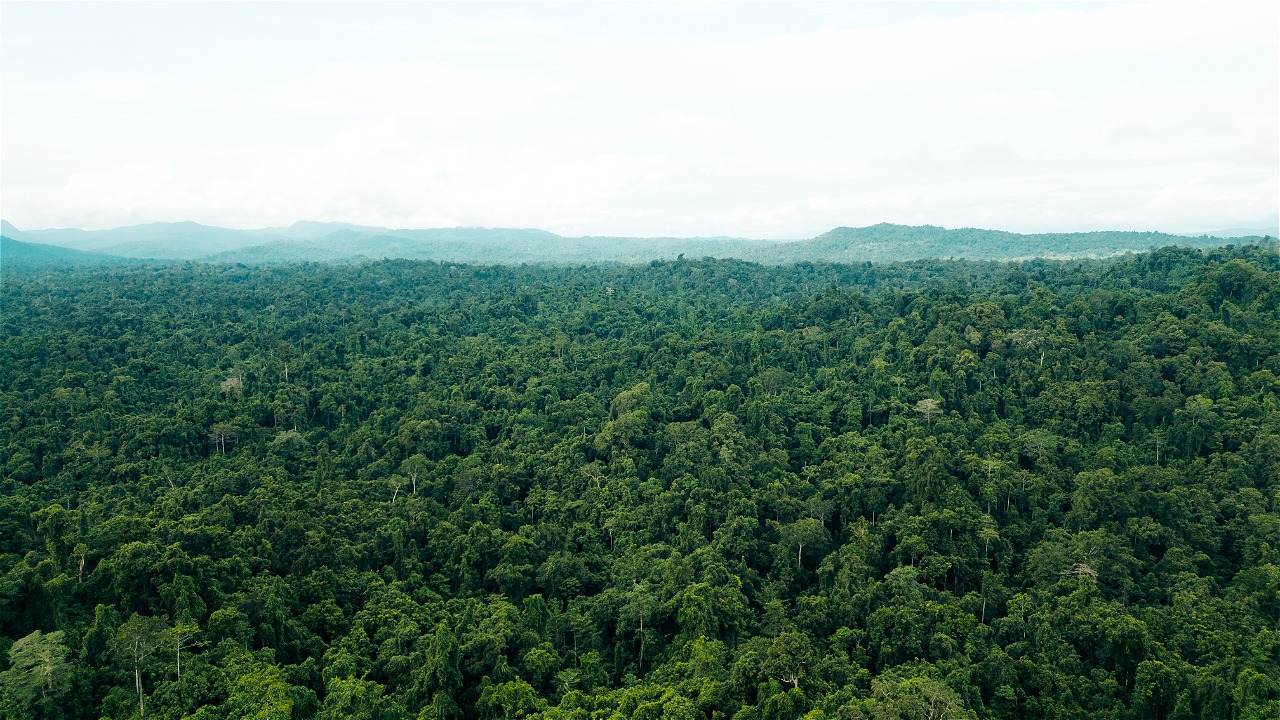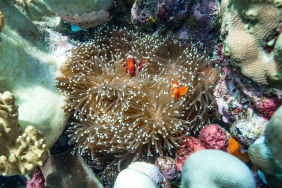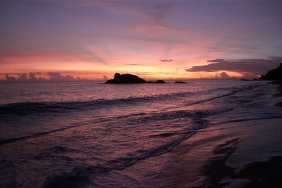LET'S BE ANIMAL-FRIENDLY TRAVELERS!
By: Adella Adiningtyas
WWF-Indonesia invites the public to welcome the National #CintaPuspaSatwa Day which falls on November 5. During the 2-hour discussion at Pisa Cafe Mahakam, WWF-Indonesia urged the participants to be aware of the impacts of marine tourism activities, such as snorkeling or diving.
Nadine Chandrawinata, who was also present as a resource person for WWF-Indonesia's honorary supporters, gave an interesting story while snorkeling in Karimun Jawa. Nadine still sees mistakes made by snorkelers in the waters of Karimun Jawa.
"Most tourists step on coral reefs when snorkeling to see marine animals up close. Even though we should not hold and step on the biota in it. It can damage and threaten the life of marine animals. Although snorkeling can be done by anyone, we still have to know the best practices in doing underwater activities," said Nadine Chandrawinata, a public figure who has been increasingly active as an environmental activist.
Responsible marine tourism practitioners
Indonesia, as part of the 13 countries experiencing the fastest growth in world tourism according to data from the World Travel Monitoring Forum, shows great opportunities for tourism businesses. However, the growth of marine tourism does not only bring economic benefits, but also adverse impacts on the surrounding environment and the lives of local communities. Therefore, responsible practices in marine tourism are important to create harmony.
The Responsible Tourism Guidance Series on Observing and Interacting with Marine Animals is a wise reference for all travelers. It explains the best environmental practices for marine activities that involve observing and interacting with marine animals in natural habitats. Utilization of marine biota ecosystems needs to be done wisely to preserve Indonesia's underwater wealth.
This shows that Indonesia has the charm of underwater natural beauty. So that many of us want to see firsthand how seabed life really is. Apparently, it is not difficult to enjoy the marine wealth. With a mask, snorkel, fins or frog legs and a life jacket, we can snorkel on the surface of the sea to observe the life of marine life.
However, it is unfortunate that there are still many tourists who like to have close interactions with marine animals. This can have a negative impact on both. Marine animals, which are vulnerable to destruction due to their soft bodies, can be easily damaged if tourists are not careful in water activities. In the end, it threatens the survival of other marine animals.
When traveling to the sea, many of us are still not aware of the impact of our behavior on marine resources, especially marine animals. So that marine tourism can continue to be enjoyed by the wider community and businesses, WWF-Indonesia published a guide entitled 'Observing and Interacting with Marine Animals'. In the guide, tourists get practical tips on how to behave wisely, friendly and responsible in marine tourism. The guide is also part of the #BuyGood Campaign.
Dayu Hatmanti, whose name is known as Miss Scuba International in 2011, was also present as a discussion moderator. Just like Nadine, Dayu as a connoisseur of the beauty of the sea feels uncomfortable if there are tourists who do not know good procedures in marine tourism. She often sees irresponsible tourists. In fact, the first thing that must be considered before traveling is choosing the right trip operator to take us. Trip operators who spearhead all marine tourism activities are expected to be able to integrate responsible and environmentally friendly practices when interacting with animals. Thus, trip operators can invite tourists to reduce threats that adversely affect the lives of animals. It is time to make improvements to the way humans interact with the environment, especially animals and plants, for a more harmonious and balanced life with nature.< br />
Let's download the Guide to Activities at Sea to become a responsible and animal-friendly marine tourist!





